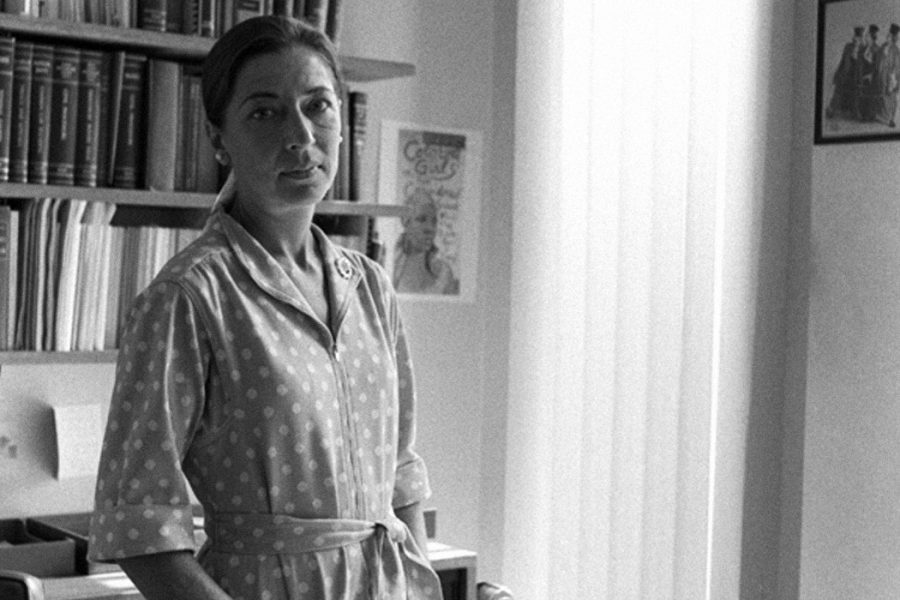Why the Death of Ruth Bader Ginsburg Matters
September 20, 2020
On September 18, 2020, Supreme Court Justice Ruth Bader Ginsburg died from metastatic pancreatic cancer. Ginsburg, a champion of equal rights for women, continued her work until the bitter end. As harrowing and tragic as her death is, we must honor her legacy and continue her work.
Ginsburg was born in Brooklyn, NY in 1933. She attended Cornell University, where she met her husband Martin D. Ginsburg. After completing her bachelor’s degree, Justice Ginsburg went to law school at Harvard, where she was one of the few women in her class. When she and her husband moved to Manhattan, NY, Ginsburg transferred to Columbia Law School and graduated first in her class. She continued to speak at the university until her death. Ginsburg regularly attended forums and presented many keynote speeches where she spread her knowledge and passion to thousands of students at universities and organizations nationwide.
Following law school, Ginsburg struggled to find employment at a law firm due to her gender. Ultimately , Ginsburg found a job as a professor at Rutgers University, where she was told that she would be paid less than her male colleagues. In addition, she was one of less than 20 female law professors around the country. However, that did not stop Ginsburg. She continued to take a strong stance on equality and show that women are just as capable as men.
After a long tenure at Rutgers, Ginsburg moved to Sweden, where she studied their civil discourse for Columbia University. In Sweden, she found that women were treated equally to men, which struck a passion that followed her throughout her career. Upon returning from her travels, Ginsburg founded the Women’s Rights Project at the American Civil Liberties Union, highlighting her dedication to equality.
In 1993, President Bill Clinton nominated Ginsburg to the Supreme Court. During her 23 years on the Court, Ginsburg continued to fight for women’s rights in cases like United States v. Virginia (1996), wherein a public military academy was charged with denying admittance to women without proper justification. Ginsburg authored the ruling on that case, which said that the school could not discriminate based on gender without “exceedingly persuasive justification.”
An example of Ginsburg’s passion to fight for equality was in Ledbetter v. Goodyear (2007), wherein a female tire plant worker named Lilly Ledbetter asserted that she was paid less than her male counterparts. While Ledbetter lost the case, Justice Ginsburg’s anger towards the ruling drove her to help inspire the Lilly Ledbetter Fair Pay Act of 2009, which gave employees greater protections against pay discrimination. Ginsburg never stopped fighting for what she believed in, and neither should we.
Justice Ginsburg has a lot to teach us about ourselves. We should be inspired by Ginsburg to dedicate ourselves to something we are passionate about, and fight for it for as long as we can. We are only in high school, but we can still channel our inner RBG by becoming dedicated to our passions and by overcoming challenges that we face in society. Ginsburg is an example about how we need to face obstacles head on, instead of avoiding them. For example, if you are interested in the environment, start talking to an expert about it and gather resources on what you can do to save the planet.
Personally, I plan on fighting for safe staffing in healthcare by talking to healthcare staff and clinical researchers about their daily experiences and reading anything I can find on the subject. If you would like to take a different approach into a topic, think about either joining or starting a club to express your passion and share it with others.
The world needs extraordinary and brave people like Justice Ginsburg, and we are the generation that can right the wrongs in our society. In order to fix the world’s problems, we have to act on them and remember one of Justice Ginsburg’s most important pieces of advice: “Fight for the things that you care about, but do it in a way that will lead others to join you.”
References
“Ruth Bader Ginsburg.” Oyez. Accessed September 19, 2020. https://www.oyez.org/justices/ruth_bader_ginsburg.
Wolf, Richard. “Justice Ruth Bader Ginsburg’s Top Opinions and Dissents, from VMI to Voting Rights Act.” USA Today. Gannett Satellite Information Network, September 19, 2020. https://www.usatoday.com/story/news/politics/2020/09/18/i-dissent-justice-ruth-bader-ginsburgs-most-memorable-opinions/2661426002/.
Slack, Megan. “From the Archives: President Obama Signs the Lilly Ledbetter Fair Pay Act.” National Archives and Records Administration. National Archives and Records Administration, January 30, 2012. https://obamawhitehouse.archives.gov/blog/2012/01/30/archives-president-obama-signs-lilly-ledbetter-fair-pay-act.
Photo Credit: RB Ginsburg 1977 ©Lynn Gilbert
Kacala, Alexander. “20 Inspiring and Empowering Quotes from the Late Ruth Bader Ginsburg.” TODAY.com. NBC Universal, September 19, 2020. https://www.today.com/news/ruth-bader-ginsburg-quotes-20-inspiring-ideas-rbg-t192057.




ORALIA • Sep 8, 2024 at 11:44 pm
Thanks Jack was an excellent article I liked that you brought up the more outstanding cases that she fought for and changed people life and justice was served.
Kate Parker-Burgard • Sep 28, 2020 at 8:06 am
Thank you for this article highlighting the critical contributions of Justice Ginsburg. I also really appreciate your call to action for all students and the example you share of your own commitment.
Cessa • Sep 20, 2020 at 2:23 pm
Amazing article, Jack! You have captured RBG’s heart and resilience and duty to justice the American people beautifully.